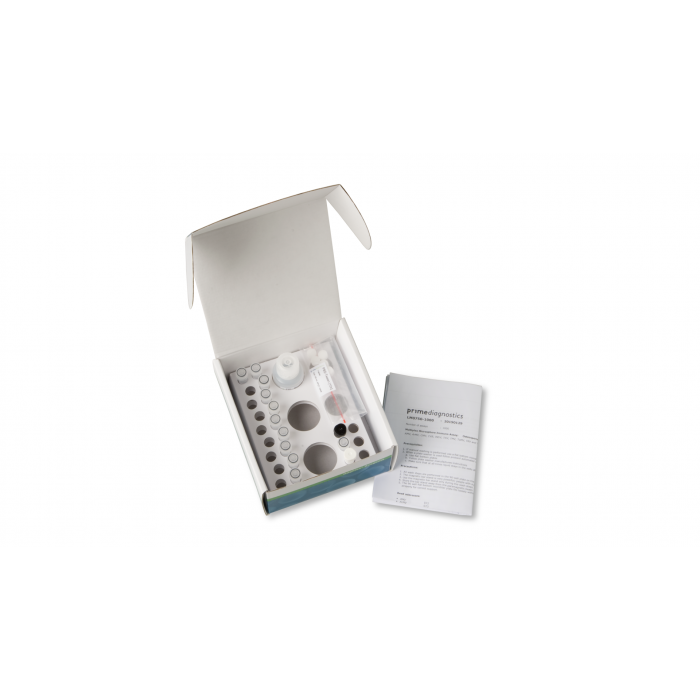LM0300-5000 xMAP 1-plex: Rsol
LM0300-5000
Luminex xMAP 1-plex kit for the detection of Rsol for 5000 reactions.
Any questions?
On request we’re able to customize our products for your specific purpose. Please contact us via primediagnostics@wur.nl.
What is Luminex xMAP?
Luminex xMAP technology is used for multiplex testing. Multiplexing is a method for high-volume testing—or testing multiple pathogens simultaneously within a single run—using a single sample volume. The Prime Diagnostics xMAP Technology is best-suited for testing 1–20 targets.
How does Luminex xMAP work?
xMAP Technology uses labeled microspheres (beads), allowing for the simultaneous capture of multiple pathogens from a single reaction. Because of their small size and low density, xMAP bead-based assays exhibit virtual solution-phase kinetics during the reaction. The beads are individually read using a Luminex instrument.
The xMAP beads pass through a red laser, or LED, which excites the internal dyes to distinguish the microsphere set. Then, a green laser or LED excites the fluorescent reporter dye to determine the result of the assay.
Key Advantages of xMAP Technology:
-
Test for more pathogens simultaneously.
-
Use a single sample to detect multiple pathogens.
-
Save time and reagents.
| Acronym | Rsol |
|---|---|
| Assay | Luminex |
| Pathogen family | Burkholderiaceae |
| Genus | Ralstonia |
| Host | Pelargonium |
| H/S-code | 30021500 |
| Number of assays/quantity | 5000 |
| Pathogen | Ralstonia solanacearum sensu lato |
| Product type | Antibody |
| Quantity | 1 |
| All Scientific Names | Ralstonia solanacearum |
| Type | Bacteria |
| Units | Kit |







